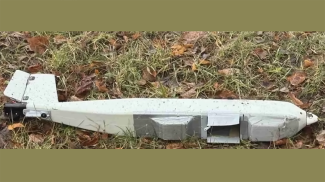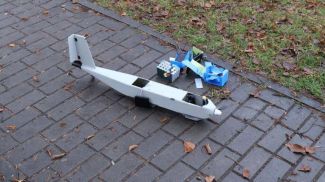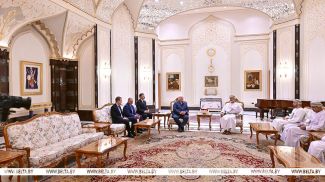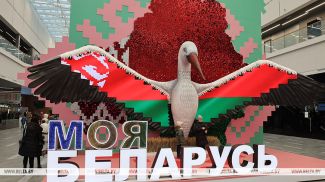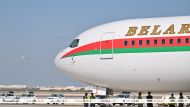
News of the story
"Victory Parade: Stories and Faces"
In the run-up to the 80th anniversary of the Victory in the Great Patriotic War, the Belarusian news agency BelTA together with the 7 Days newspaper launched a large-scale project. During the year we will be narrating the stories of the Belarusians who took part in the legendary Victory Parade in 1945. These men fought at Rzhev and Odessa, won the battles of Stalingrad and Kursk, liberated Belarus, and took Berlin. On 24 June 1945 they marched triumphantly through Red Square in Moscow. They are the faces of our great Victory!
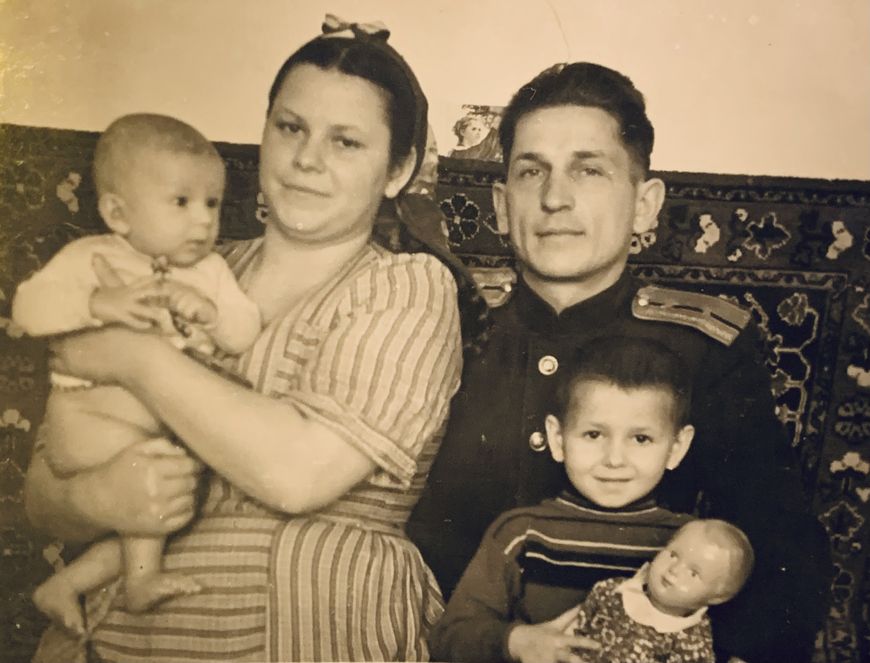
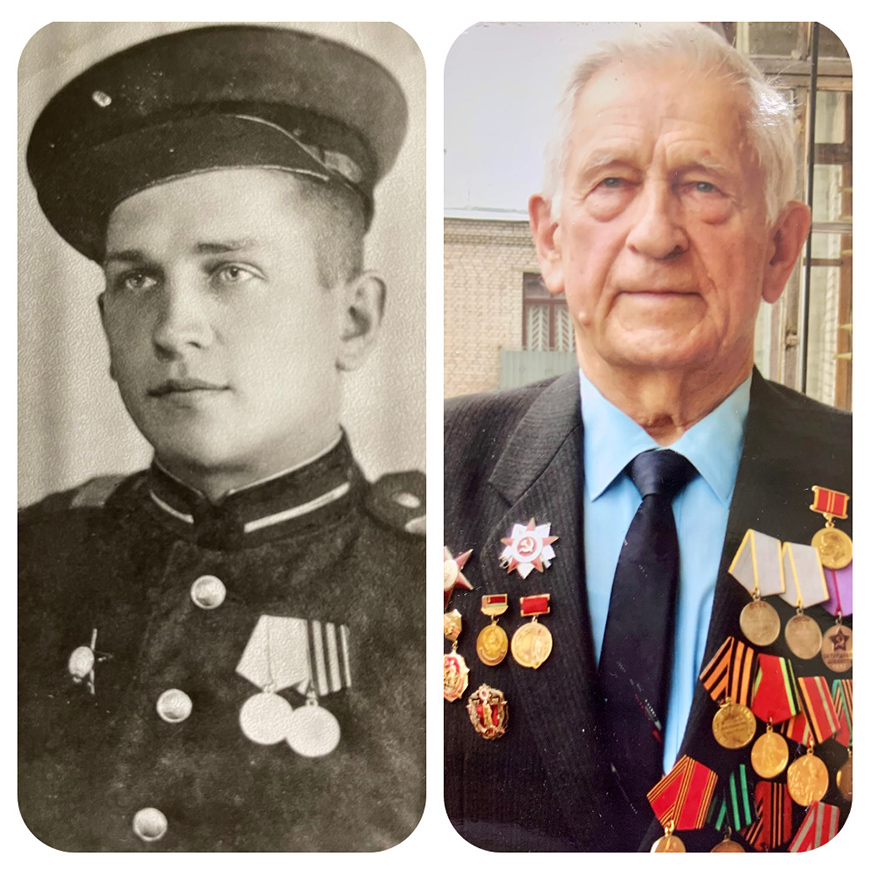
On the night of 22 June 1941, Grigory Vlasenko and his friends went to see their first adult dawn. Watching the sunrise, classmates discussed the past graduation prom, made plans for the future, dreamed of going to university. Grigory really wanted to become a mathematician. No one could imagine that the war was about to change their lives forever.
‘From school prom to a military enlistment office’
Grigory Vlasenko became a radio operator. This was a special category of servicemen who were always at the forefront during battles. During the Great Patriotic War, they not only established communications and intercepted intelligence, but also transmitted information that helped Soviet troops to defeat the enemy.
“Dad grew up in the Far East, in the town of Bikin located 300kilometers from Khabarovsk. The last day of peaceful life, 21 June 1941, coincided with his high school graduation. He and his classmates went to the river bank to see the dawn after the prom. The merry group chatted, remembered school fun, sang songs, dreamed... Suddenly they saw a local running towards them and shouting something. It turned out that the man was repeating just one word: war. The boys went to the military enlistment office the same day and asked to go to the front. Dad became a radio operator: first he took a radio course at the military recruitment center, and then he was sent to Khabarovsk to continue his training,” his daughter Galina Sanko tells the story of Grigory Vlasenko, giving me photos: first of a smiling young man, and then of a man in his late teens, with gray hair. The war left almost no marks on this face, except that the eyes seemed a little faded...
Grigory Vlasenko, along with 49 other cadet radio operators, were sent to the front in February 1942. When they arrived at the Bryansk Front headquarters, seven best fighters, including Grigory Vlasenko, were transferred to the 109th communications regiment. Grigory Vlasenko became a radio operator at the 3rd Army headquarters.
He received his first medal - the Medal for Military Merit - in August 1943 for the capture of Orel. The medal sheet reads: “For ten days on end, under heavy enemy fire, radio telegraph operator of the radio company Sergeant Vlasenko maintained uninterrupted radio communications between the 3rd Army commander and the commanders of three rifle divisions during the advancement and the crossing of the Zusha River in the area of the villages of Izmailovo and Vyazhi in Orel Oblast. He transmitted all combat orders of the army commander in a quickly and timely manner, which contributed to the successful efforts of our troops to defeat the Nazi invaders.”

Sergeant Vlasenko was steadfast
On 21-26 February 1944 our troops carried out the Rogachev-Zhlobin Offensive in order to crush a Nazi grouping in the area of Rogachev and Zhlobin and to pave the way for an offensive in the Bobruisk direction. The 3rd Army under the command of Lieutenant General Alexander Gorbatov took an active part in it. That's how Alexander Gorbatov assessed the outcomes of the operation: “We made huge gains during the four days of the battles. We crossed the Dnieper, broke through the enemy's heavily fortified defensive line, captured a critical bridgehead that ran 62 km along the frontline and up to 30 km in depth (this bridgehead later played a major role in the Bobruisk Operation in the summer).” But what preceded these events is also important. On 19 February Lieutenant General Gorbatov tasked Lieutenant Colonel Osipov and a specially equipped battalion to reach the enemy's rear and capture a bridgehead in the area between the Dnieper and Drut rivers so that the 3rd Army could successfully advance on Rogachev. Sergeant Vlasenko was appointed head of the radio station in the battalion.
According to archival documents, the radio operators had a difficult task to get behind the enemy lines as part of a ski battalion and connect it with the observation unit of the army commander. “Despite the 30km trip on the roadless area with a load of radios and power supply to them, increased enemy fire, complexity related to setting up transmissions at night, wintry weather, and huge radio interference, Sergeant Grigory Vlasenko stood strong. All negotiations between the commander of the ski battalion and the commander's observation unit were carried out clearly, quickly and in a timely manner,” Grigory Vlasenko's award certificate reads.
During an encounter with an enemy group near the village of Madora, he took a direct part in the defeat of the enemy and their equipment. The radio operator personally destroyed one of the enemies. Uninterrupted radio communication contributed to the successful performance of the task by the army units in breaking through the enemy's defense along the right bank of the Dnieper. For this operation Grigory Vlasenko was awarded the Order of the Red Star.
Later Grigory Vlasenko participated in Operation Bagration, took part in the battles in Bialystok and East Prussia, was awarded medals for the capture of Koenigsberg and Berlin.

“Front-line soldiers had a tacit understanding with partisans”
After the Victory, the regiment in which radio operator Grigory Vlasenko served was stationed near Berlin. In the second half of May Grigory Vlasenko was called to the headquarters to learn that he had been selected to represent the radio operators in the combined parade regiment of the 1st Belorussian Front. The training began in Potsdam and continued in Moscow.
“The father met all the parameters necessary for the participation in the parade: age, height, and most importantly, at least three combat awards, including the medal “For Combat Merit”, the highest in terms of recognizing the heroism of a soldier,” Galina Sanko said. “Talking about the time he spent in Moscow, he said that the participants underwent a full medical checkup before the parade. He also recalled how well they were fed. It was very important and memorable for the soldiers, especially after all the hardships they had to go through at the front.”
The veteran's family preserves a unique photo, the only one taken in Moscow in June 1945. It captures Grigory Vlasenko in ceremonial uniform with medals on his chest.
After the war, for some time Grigory Vlasenko served in the 109th signal regiment under the headquarters of the Byelorussian Military District in Minsk. Then he met his future wife: the young serviceman fell in love with the daughter of his landlady. The girl liked him as well, and her mother was happy to have such a prominent son-in-law.
The family lived in Sakhalin for two years, where Grigory Vlasenko worked as head of the radio station of the 29th Air Army. Later, he returned to Minsk with his wife, their 4-year-old daughter and a three-month-old son born on Sakhalin. Grigory Vlasenko initially worked in the Minsk Oblast Committee of the All-Union Leninist Young Communist League and then in the Central Committee of the Communist Party of Belarus for more than 10 years.
"My father was a very decent man, very humble," his daughter noted. "He didn't talk much about the war, but it wasn’t necessary at the time. The front-line soldiers and partisans with whom he worked side by side (Kirill Mazurov, Pyotr Masherov, Sergei Pritytski, and many others) understood each other without words."
If you are a relative or friend of a frontline soldier who took part in the Victory Parade on Red Square, Moscow, in June 1945 and you are willing to share your family story and photos with us, please call +375 17 311-33-17 or send an e-mail to ygavrilenko@belta.by. Let's tell the story of our Victors together!
Yulia GAVRILENKO,
7 Days newspaper
Photos courtesy of Grigory Vlasenko's family




